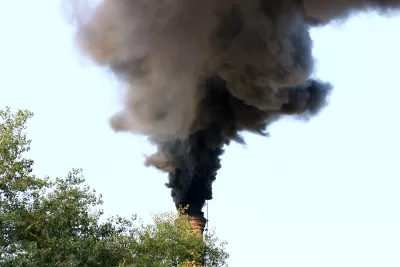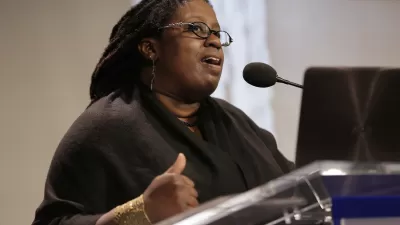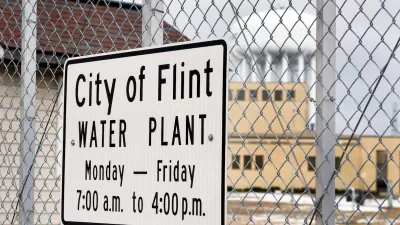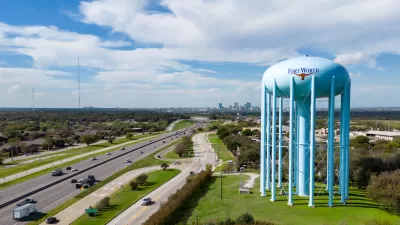Civil rights activists celebrate a legal settlement that will require the state of Michigan to prevent hazardous waste and other industrial facilities from disproportionately polluting lower income and predominantly Black and brown communities.

According to an article in Detroit Metro Times, “Environmental activists reached a ‘groundbreaking settlement’ with Michigan regulators following a civil rights complaint over the state’s disproportionate licensing of hazardous waste facilities in predominantly Black, brown, and lower-income neighborhoods.” The settlement is regarding a complaint filed in 2020 by the Sierra Club, Michigan Environmental Justice Coalition, and residents who live near U.S. Ecology North facility in Detroit when the company decided to renew its license and permit to increase hazardous waste storage capacity, reports article author Steve Neavling. “The Great Lakes Environmental Law Center, which represented the group, argued that it was unfair to permit more hazardous waste storage in a neighborhood that is predominantly composed of lower-income residents and people of color,” Neavling writes.
Under the settlement agreement, residents near hazardous waste facilities will receive stronger protections. The Michigan Department of Environment, Great Lakes, and Energy will now be required to use a federal mapping tool called EJScreen that identifies areas facing environmental risks and challenges with the goal of preventing hazardous waste and other industrial facilities from disproportionately polluting lower-income communities or communities of color. The agreement also requires EGLE to work with communities to identify the most effective metaphors for gathering input, provide translation and interpretation services for communities with limited English proficiency, and install air monitors around U.S. Ecology North to gather and publish public air quality data.
This is a big win for lower-income, predominantly Black and Brown communities in Detroit that have been disproportionately impacted by the siting of polluting factories and waste storage facilities, the article says. “For decades, Michigan’s communities of color have been the dumping ground for hazardous waste from across the country … This settlement agreement commits Michigan to putting an end to this legacy of environmental racism by centering the community in the hazardous waste licensing process through the use of Michigan’s environmental justice screening tool to conduct environmental justice and cumulative impact analyses,” Nick Leonard, executive director of the Great Lakes Environmental Law Center, told the Metro Times.
FULL STORY: Michigan regulators settle civil rights case over environmental racism in Detroit

Alabama: Trump Terminates Settlements for Black Communities Harmed By Raw Sewage
Trump deemed the landmark civil rights agreement “illegal DEI and environmental justice policy.”

Planetizen Federal Action Tracker
A weekly monitor of how Trump’s orders and actions are impacting planners and planning in America.

The 120 Year Old Tiny Home Villages That Sheltered San Francisco’s Earthquake Refugees
More than a century ago, San Francisco mobilized to house thousands of residents displaced by the 1906 earthquake. Could their strategy offer a model for the present?

In Both Crashes and Crime, Public Transportation is Far Safer than Driving
Contrary to popular assumptions, public transportation has far lower crash and crime rates than automobile travel. For safer communities, improve and encourage transit travel.

Report: Zoning Reforms Should Complement Nashville’s Ambitious Transit Plan
Without reform, restrictive zoning codes will limit the impact of the city’s planned transit expansion and could exclude some of the residents who depend on transit the most.

Judge Orders Release of Frozen IRA, IIJA Funding
The decision is a victory for environmental groups who charged that freezing funds for critical infrastructure and disaster response programs caused “real and irreparable harm” to communities.
Urban Design for Planners 1: Software Tools
This six-course series explores essential urban design concepts using open source software and equips planners with the tools they need to participate fully in the urban design process.
Planning for Universal Design
Learn the tools for implementing Universal Design in planning regulations.
Clanton & Associates, Inc.
Jessamine County Fiscal Court
Institute for Housing and Urban Development Studies (IHS)
City of Grandview
Harvard GSD Executive Education
Toledo-Lucas County Plan Commissions
Salt Lake City
NYU Wagner Graduate School of Public Service





























